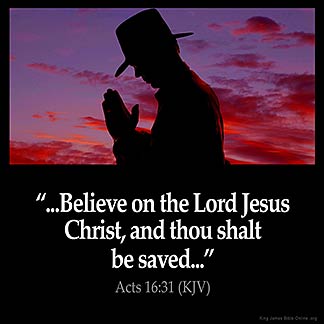“And the things that thou hast heard of me among many witnesses, the same commit thou to faithful men, who shall be able to teach others also” 2 Tim 2:1
A new book, Saving Church: Restoring the People of God with Missional Evangelism, co-authored by two experienced ‘giants of missional theology and the Fresh Expressions movement,’ Martyn Atkins and Kenneth H. Carter, warns that the 21st century Church is in a state of distress. As a prophetic voice, the book Saving Church points to people who are ‘disquieted, disenchanted, and dispirited.’ The book does not look at the Church as a building or attendance, hence the need to know what makes a church as ‘a community of people embodying God’s presence and purpose in the world.’ I reflect that the Gospel creates the Church while the Church protects and displays the Gospel. To save the Church, the Gospel must be safeguarded for the progression of ministry, mission, and evangelism. A safeguarded Gospel creates a safeguarded church.
The Gospel as a message, when embraced, believed, and trusted, creates a people, and the people ‘in turn demonstrate the promises and truth of the message.’ The Gospel, the Good News that Jesus Christ, the Worthy Lamb, loves an unworthy sinful people by rescuing them from the wrath of God (1Jn 4:10, Rom 5:8). God saves us personally and into a corporate fellowship as members of the same body through the Gospel (Eph 3:6).
The Church has something worth contending, guarding, and protecting; that is, the Gospel that creates it. Scripture is clear about this (2 Tim 2:1-7). The Church, the community of all faithful followers of Jesus Christ, locally and worldwide, is responsible for safeguarding the authentic and original teaching and message of Jesus Christ and those he commissioned to deliver that message as recorded in the Bible. This includes passing that truth on and committing it to trustworthy individuals without distortion, compromise, or corruption. There must be sound Bible-based teaching and instruction within the Church. John Wesley had the vision and strategy to safeguard the genuine and original teachings and messages of Jesus Christ. As a man of One Book, the Holy Scriptures, he entrusted the message of Christ to faith believers through the class meeting as a means of grace, to know, live, and teach true Bible-based faith (2 Tim 4:6, Rom 6:17).
The power and development behind the class meeting that the Church needs today is the ability and responsibility of faithful and committed witnesses of the Gospel of Christ to teach others the things they have heard among many witnesses. In this context, the word ‘faithful’ applies not only to a person’s gift and knowledge but also to the person’s character and lifestyle. We must notice the progression of ministry here and how it describes the discipleship process, which involves training Christians in the practical disciplines of following Jesus Christ to the point where they lead others to Him and then train them. This is what Wesleyan’s class meeting is all about a leader producing more leaders and spreading scriptural holiness across the land.
Our text contains four levels of training of faithful believers and witnesses’ descriptions. Paul has mentored Timothy, who will now pass the teaching on to other trustworthy learners, who will then teach others. We can remember the missional events of the Moravians in 1727 when this group of Christians fleeing persecution in the modern-day Czech Republic began a 24-7 prayer-vigil, non-stop prayer session that lasted for 100 years and climaxed with a launch of a global mission’s movement. Wesley’s 1738 New Year’s prayer meeting with men and women in attendance safeguarded the Gospel and progressed the ministry.
Safeguarding as a means of progressing and growing the ministry and the Church is not just a managerial or management duty; it is a journey of a co-traveller through the scriptural holiness highway and route with an eternal destination in view.
When the Gospel is not safeguarded, the Gospel get aground, and the Church declines. The failure of the church structure today is the inability to safeguard the Gospel from decline and compromise. To safeguard the Gospel is to disciple people on the great necessity ‘to contend for the faith which was once delivered unto the saint’ against false teaching, theologies, and philosophies (Jude 1:3, Acts 20:31). To safeguard the Gospel is to continue character and moral growth through teaching’ doctrine which is according to godliness (1Tim 6:3, Jos 1:8, Ps. 2-3).
When the Gospel is safeguarded, people are motivated through the eternal truths of God’s Word to be passionately committed to spreading the message of new life through Jesus Christ to people of all nations and cultures who do not yet have a personal relationship with Jesus Christ. This is possible ONLY in the power of the Holy Spirit (Matt 28:18-20). When the Gospel is safeguarded, peoples’ experience of Christ’s love, personal companionship and the gift of the Holy Spirit is deepened (Jn 17:3, Eph 3:18-19).
For the Gospel to be genuinely safeguarded and for Bible-based training, teaching and instruction must be done only by those who are intensely loyal to Scripture as God’s fully inspired Word (2Tim 1:13-14, Ezr 7:10). To safeguard the Gospel, we need people who are open to the powerful work of the Holy Spirit in and through them. In safeguarding the Gospel, true righteousness remains a standard, that is, a right relationship with God that affects not only what we know but also who we are and what we do (1 Tim 1:5).
Safeguarding the Gospel to progress the ministry and save the Church warns us that losing the Gospel does not happen all at once, just as church decline does not happen all at once. It happens in four processes – the Gospel is accepted, the Gospel is assumed, the Gospel is confused, and the Gospel is lost. Beloved, let us Arise and Contend for the faith of our fathers as we sing the hymn by Frederick William Faber (1849) together.
1 *Faith of the martyrs, living still
in spite of dungeon, fire, and sword;
oh, how our hearts beat high with joy
whene’er we hear that glorious word!
Refrain:
Faith of the martyrs, holy faith,
we will be true to thee till death.
2 The martyrs chained in prison cells
were still in heart and conscience free,
and bless’d would be their children’s fate
if they, like them, should die for thee! [Refrain]
3 Faith of the martyrs, we will love
both friend and foe in all our strife,
and preach thee, too, as love knows how,
by saving word and faithful life! [Refrain]











Recent Comments